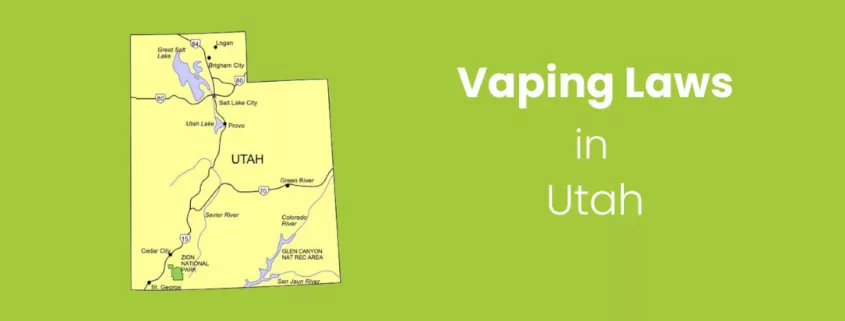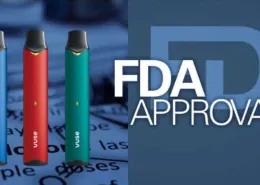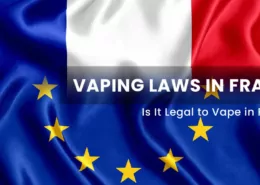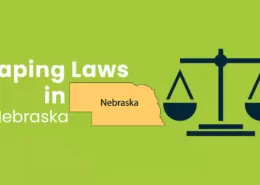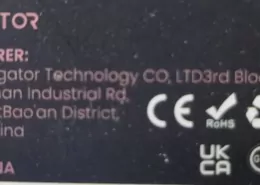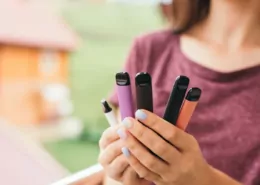Vaping Laws in Utah – Regulations and Everything You Need to Know 2025
The Utah state has constructed one of the nation’s most restrictive vaping frameworks, coupling a high excise tax with sweeping product limits, strict retailer licensing rules, and comprehensive public use bans. For consumers, retailers, and manufacturers, understanding these evolving regulations is crucial. This guide provides an in-depth look at Utah’s current vaping laws, helping you navigate this dense web of statutes and agency rules with clarity and confidence.
Is Vaping Legal in Utah?
Yes, vaping is legal for adults aged 21 and over in Utah. However, it is subject to some of the most stringent regulations in the United States. These laws heavily restrict the types of products that can be sold (especially flavored ones), where they can be used, and how they are taxed, creating a tightly controlled market.
What Utah Considers an E-Cigarette
Utah law provides specific definitions for vaping products. An “electronic cigarette” is defined as any device that can be used to deliver an aerosolized or vaporized substance to the person inhaling from the device, including any component, part, or accessory. The term “electronic-cigarette product” is even broader, encompassing the device itself, the substance it contains, or a prefilled unit sold containing both.
Age Restrictions: Strictly 21 and Over
Utah state enforces a minimum legal sales age of 21 for all tobacco and vapor products, aligning with federal “Tobacco 21” legislation. It is illegal for anyone under 21 to purchase, possess, or use these products.
Retailers are legally mandated to verify the age of any purchaser by checking a valid government-issued photographic identification. Penalties for selling to underage individuals are severe and escalate with repeat offenses within a specified timeframe:
- First violation: $1,000 fine.
- Second violation: $1,500 fine.
- Third violation: $2,000 fine or a 30-day permit suspension.
- Fourth violation: $2,000 fine and permanent revocation of the tobacco retail permit.
For individuals under 21 caught possessing or using vape products, the penalty is typically a $60 fine, and they may be required to attend a court-mandated educational program.
The Flavor Ban and PMTA Registry in Utah
The most recent developments in Utah’s vaping regulation are the implementation of a statewide flavor ban and a product registry system, both stemming from the passage of Senate Bill 61 (SB61).
The Flavored Vape Ban
As of March 25, 2025, following a court decision that lifted a temporary restraining order, Utah began enforcing a ban on the sale of most flavored vaping products. The law prohibits the sale of any e-cigarette product with a characterizing flavor other than tobacco or menthol. This includes all fruit, candy, dessert, and other sweet flavors that public health officials argue are particularly appealing to youth. This ban applies to all retailers, including both general stores and specialty tobacco shops.
The PMTA Product Registry
In addition to the flavor ban, SB61 established a state-managed product registry for all e-cigarettes and vapor products. To be legally sold in Utah, a product must be listed on this registry, which is maintained by the Utah State Tax Commission. The requirements for inclusion are tied to the federal FDA’s Premarket Tobacco Product Application (PMTA) process:
- A product must have either received a marketing granted order (MGO) from the FDA or have a pending PMTA that was submitted by the September 9, 2020, deadline.
- Manufacturers must pay a fee to list their products on the registry ($1,000 per SKU initially, plus a $250 annual renewal fee).
The registry was posted on October 1, 2024, and the ban on selling unlisted products became effective on January 1, 2025. Given that the FDA has authorized very few vaping products (and almost no flavored ones), this registry system, combined with the flavor ban, effectively eliminates over 99% of the vaping products that were previously available on Utah shelves.

Where Vaping is Prohibited in Utah
Utah has comprehensive laws restricting where vaping can occur, treating it identically to traditional smoking in most public spaces.
Utah’s Indoor Clean Air Act (UICAA)
The Utah Indoor Clean Air Act (UICAA) explicitly includes e-cigarettes in its definition of “smoking.” This means that vaping is prohibited in all enclosed indoor places of public access and places of employment. These locations include, but are not limited to:
- Restaurants and bars.
- Workplaces and offices.
- Retail stores and shopping malls.
- Public buildings.
- Healthcare facilities and hospitals.
- Schools and childcare facilities.
The law also prohibits vaping within 25 feet of any entrance, exit, open window, or air intake of a building where vaping is prohibited indoors. Business owners are required to post “No Smoking or Vaping” signs and are responsible for enforcing the ban on their premises. Violations can result in citations and escalating fines for the business.
Limited exemptions exist for designated hotel/motel rooms and owner-operated businesses with no other employees, but these are narrow exceptions.
Vehicle Restrictions
Utah law (Utah Code Ann. § 41-6a-1717) prohibits smoking (which includes vaping) in a motor vehicle when a person 15 years of age or younger is present. This is a secondary offense, meaning an officer can only issue a citation for it if they have stopped the vehicle for another primary traffic violation. The fine for this infraction is $45.
Ecigator is one of the well-known vape brands spun off from FM Technology Co., Ltd, it’s an ISO-certified disposable vape manufacturer for OEMs, ODMs, and OBM since 2010. The founder team comes from top firms with more than 10 years of experience in the vaping industry and has devoted thousands of hours to providing users with a better and better experience.
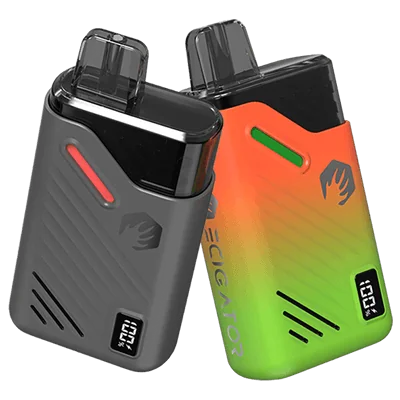
18K Disposable Pod Kit
Disposable Pod Kit – 18ml changeable pod with 650mAh rechargeable battery.
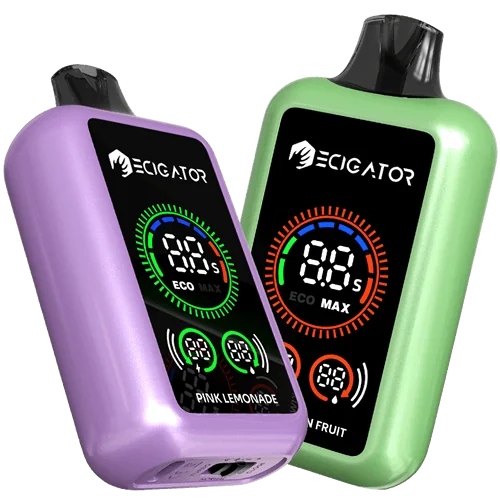
20K with Large Screen
20000 Puffs Disposable Vape with large screen. Normal and Boost working modes.
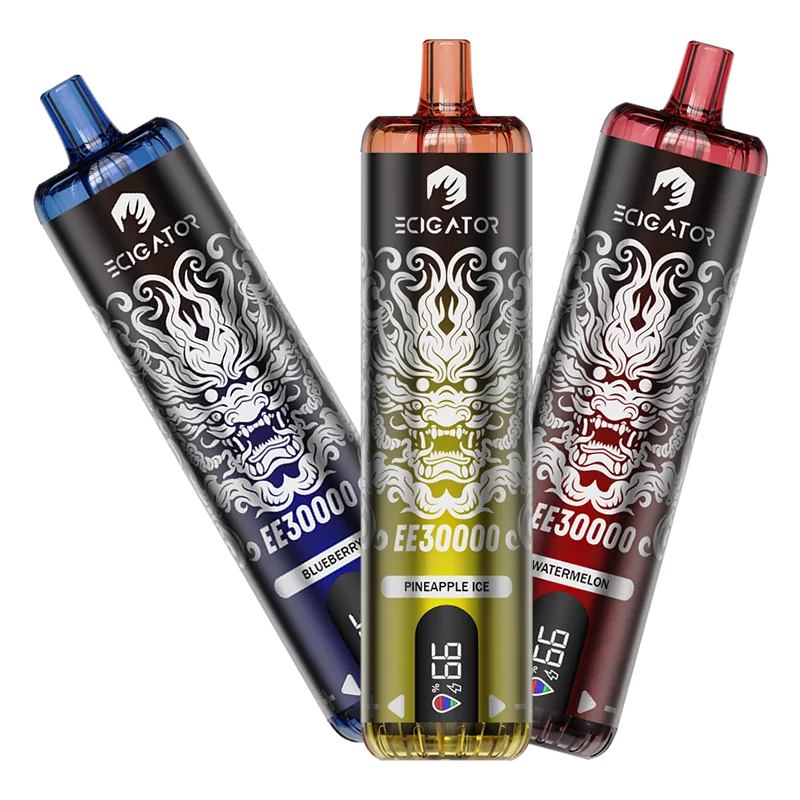
30K DTL Disposable
30K Puffs DTL(Directly to Lung) disposable vape with airflow control and screen.
Selling Vaping Products in Utah
The sale of vaping products in Utah is a tightly controlled activity with specific requirements for retailers.
Mandatory Retailer Licensing and Permits
All businesses that sell e-cigarettes or other vapor products in Utah must obtain a tobacco retail permit from their local health department. Additionally, retailers must be licensed with the Utah State Tax Commission for tax purposes.
For tobacco specialty businesses (defined as those where vaping products constitute more than 35% of gross receipts), there are additional, stricter location restrictions. These shops cannot be located within:
- 1,000 feet of schools, churches, playgrounds, or youth centers.
- 600 feet of other tobacco specialty shops.
- 600 feet of property zoned for agricultural or residential use.
Sales Practices and Shipping Requirements
- No Self-Service Displays: Self-service displays of vapor products are prohibited except in adult-only (21+) tobacco specialty stores.
- Vending Machines: Vending machine sales are restricted to locations where individuals under 21 are not permitted access.
- Online Sales Prohibition: Utah law bans direct-to-consumer internet, phone, or mail-order sales of all tobacco and vape products. Products can only be shipped between licensed businesses (B2B transactions). Violating this can result in fines of up to $5,000 per shipment.
Taxation of Vaping Products
Utah imposes a state excise tax on all e-cigarette products, including devices and liquids (both nicotine and non-nicotine). The tax rate is 56% of the manufacturer’s sales price (wholesale price). This tax, effective since July 1, 2020, is one of the highest ad valorem (percentage-based) vape taxes in the U.S., tying with Colorado. This tax significantly increases the retail cost of legal vaping products for consumers.
In addition to this excise tax, Utah also taxes alternative nicotine products, such as nicotine pouches, at a rate of $1.83 per ounce.

ECIGATOR
Ecigator is one of the well-known vape brands spun off from FM Technology Co., Ltd, it’s an ISO-certified disposable vape manufacturer for OEMs, ODMs, and OBM since 2010. The founder team comes from top firms with more than 10 years of experience in the vaping industry and has devoted thousands of hours to providing users with a better and better experience.
Conclusion:
Utah’s vaping laws represent one of the most restrictive and comprehensive regulatory frameworks in the United States. For consumers, this means a drastically reduced selection of legal products, with most flavored options off the market, and strict rules on where they can vape. For retailers, it requires meticulous adherence to licensing, age verification, and ensuring all inventory is on the state’s approved product directory to avoid severe penalties. Staying informed through official state resources like the Utah Department of Health and Human Services and the Utah State Tax Commission is essential for all stakeholders navigating this complex and evolving environment.
References
- Utah State Tax Commission – Tax Bulletin 16-24 (Vapor Product Directory)
- Utah Tobacco Laws – Indoor Clean Air
- Utah Tobacco Laws – Tobacco Sales
- Utah State Tax Commission – E-Cigarette and Other Nicotine Products
- Utah County Health – Tobacco Retail Permits
- Malaysia Negeri Sembilan Backs Vape Ban, Awaits Clear Laws - August 5, 2025
- Is It Illegal to Vape or Smoke While Driving in Massachusetts? - August 5, 2025
- Austria Plans to Ban Disposable E-Cigarettes - August 5, 2025

